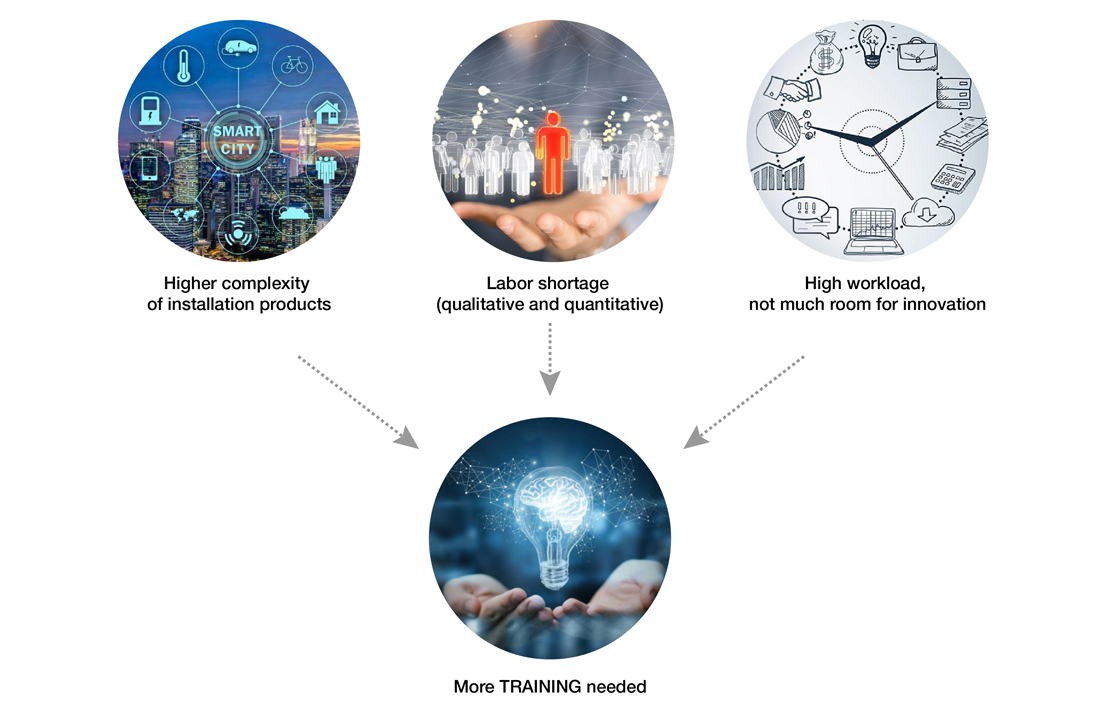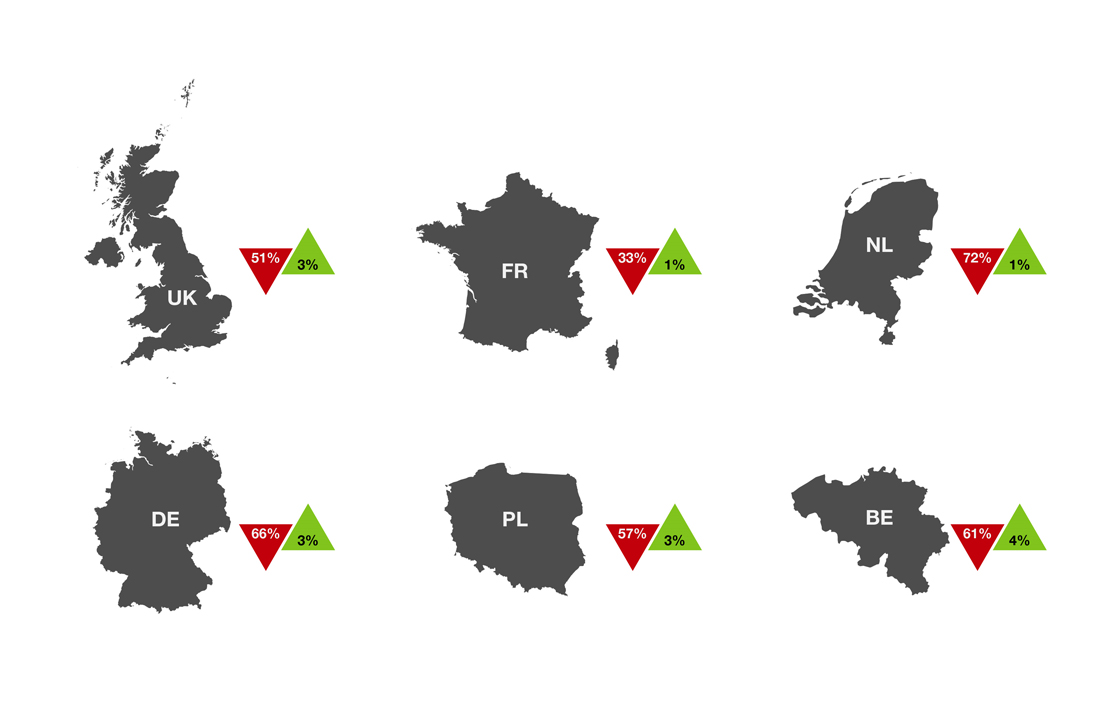The Importance Of Training In Supporting The Trades
The COVID crisis has been affecting people and organizations in many ways, but one clear negative effect was that it limited face to face communication and direct contact. And when it comes to product training, we all know that the best designed online training or live presentation cannot substitute the face-to-face training where the plumbers and electricians can take the product in their own hands, test it, and compare between different models. The benefits of having a trainer next to you, explaining, and customizing the answers, go beyond the actual learning. They also help connecting us as a company to our customers and build long term relations and loyalty.
As we wanted to get a clearer, evidence-based perspective of the importance of training in our industry, we recently talked to Dirk Hoogenboom, Research Consultant at the USP Marketing Consultancy firm. USP has been researching the industrial space in Europe with a focus on plumbing and electrical for more than 20 years. Below you will find a few key highlights from the interview, where we talked about what is currently the perception of European installers about training services, are they still interested in spending time and effort participating to product trainings and what can we expect in the coming years.

How Important Is Training Anyway?
If we have a look at the European construction market in general and the installation market, we see a few trends that have been accelerating in the past years.
First, labour shortage both in terms of quantity of workforce available and quality of the work, has been a problem for many years. With more young people choosing theoretical education versus vocational schools, the gap threatens to become even bigger in the future. We see shortage both in plumbing and electrical installation work, but according to USP’s statistics, the plumbing and mechanical installation sector seems to be more affected.
Second, the workload on the current workforce is higher and higher, so our end customers need to work faster and more efficiently every day. This also narrows their perspective and makes them focus more on the short term and on those tools that help them now.
Third, installation technologies change rapidly, to generate more sustainable and climate-friendly outcomes. Heat, cooling and electrical installation technologies become more sophisticated and digitalized, which requires installers to continuously update their skills.
All these trends combined, make training essential, to fill the knowledge gap and increase installers’ productivity on the job site. What is also true is that as a manufacturer, we need to design the right training program that addresses the specific needs of each customer group.
Where Are the Biggest Knowledge Gaps?
Next to installation products and techniques, plumbers and electricians need to master a very wide range of technologies, applications, and related products. But one of the most complex areas is related to new rules and regulations. Especially in Europe, with so much focus on green energy and sustainability, legislations change very fast, and installers need to keep the pace.
For example, in the UK (56%), Belgium (55%) and in Germany (43%), installers believe that new laws and regulation is the most important training topic they currently need. Acquiring new product information and knowledge is in top 5, together with the installation of products, market trends and troubleshooting. At the bottom of the list are topics like digitalization and connectivity or business training. This is also caused by the pressure and high workload, which makes the installers think and act on a shorter term.
Number of Training and Preferred Format
Although we have experienced a continuous flow of email invitations to online trainings, presentations, and virtual conferences in the last year, the decrease in the number of professional trainings that European installers felt, proved that online trainings are not a solution that fits all needs. There are certain types of knowledge and training that cannot be done virtually, like in-depth product trainings. The most affected were the Netherlands (-72%), Germany (-66%) and Belgium (-61%), but all countries experienced a high drop in the number of trainings attended.

* The number of trainings attended by country in 2021, compared to 2020.
The default format of trainings in the last year also changed. Most manufacturers had to shift from face to face to online. Although online training has its advantages and it works for certain topics, installers very much prefer to have a face-to-face training as well. In fact, more than 90% of installers prefer a face to face or mixed (online + face to face) training.
Ready to Tackle the Future Challenges
As Professional Tools, we have always put a strong emphasis on product training and learning. It’s part of our DNA and it’s what always brought us the appreciation and loyalty of our end customers. We are today well equipped to continue these traditions and offer the best-in-class training both face to face and online. Our trainers, our sales teams, product managers, customers service, technical service, and engineering teams are all bringing their expertise in front of our customers as they are supporting and educating them to become even more productive on the job site. We will continue to diversify our training programs and offer more flexibility as the Covid situation stabilizes. Until then, end users are reaching out and continue to schedule virtual trainings, that can be customized to everyone’s specific needs
We are always looking forward to sharing our expertise with anyone who is interested in finding out more about our tools and technologies.
You can contact us at any time to schedule a training or a free product demonstration.
Stay in touch with us, subscribe to our monthly newsletter and discover our social media channels HERE.